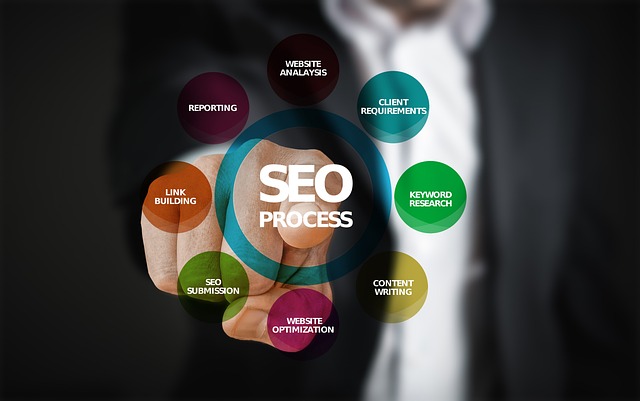By 2025, mobile devices will continue to shape search engine optimization (SEO) strategies as the digital landscape evolves. The Future of SEO Conference will explore crucial trends and practices for success, including:
– Voice Search Optimization: Adopting best practices like targeting long-tail keywords and conversational language to dominate voice search results.
– E-A-T Enhancement: Using mobile content optimization techniques (structured data, consistent branding) to boost Expertise, Authoritativeness, and Trustworthiness.
– Accelerated Mobile Pages (AMP): Implementing AMP for faster loading times and improved user experience to maximize SEO gains.
– Visual Search: Optimizing image file sizes and structured data markup to leverage AI advancements in visual content interpretation.
– AI-Driven Content Personalization: Understanding the impact of machine learning algorithms on providing tailored search results and enhancing user engagement.
– Local SEO Dominance: Leveraging location-based keywords, claiming local business listings, and optimizing for mobile maps to reach nearby prospects.
– Mobile-First KPIs: Using advanced analytics tools to track and optimize mobile strategies based on specific KPIs, understanding user journeys, and driving conversions.
The mobile revolution continues to shape the future of SEO, with 2025 set to bring significant trends that will impact search strategies. As users increasingly rely on smartphones for online queries, optimizing for a seamless mobile experience is no longer an option but a necessity. This article explores the evolving role of mobile in SEO, delving into voice search optimization, E-A-T credibility, AMP speed improvements, visual search, AI personalization, local SEO relevance, and advanced analytics—all crucial elements to stay ahead at the upcoming Future of SEO Conference.
The Evolving Role of Mobile in SEO

In the rapidly evolving digital landscape, the role of mobile devices in search engine optimization (SEO) has become increasingly paramount. As we move into 2025, understanding the changing behavior of mobile users is not just beneficial but essential for any successful SEO strategy. With the advancements in technology and the ubiquitous nature of smartphones, consumers now expect seamless, instant access to information on their mobile screens. This shift in user preference has prompted search engines like Google to prioritize mobile-friendly content, making it a cornerstone of modern SEO practices.
The Future of SEO Conference will undoubtedly highlight these trends, focusing on how businesses can adapt to the mobile-first approach. Optimizing for voice search, improving page load speeds on mobile networks, and creating responsive, user-friendly interfaces are some areas that will be in the spotlight. Marketers and SEO specialists must stay ahead of the curve by embracing these mobile-centric trends to ensure their online visibility and remain competitive in the digital marketplace.
Voice Search Optimization: A Growing Priority

As we look ahead to 2025, voice search optimization is poised to become an even more critical aspect of Mobile-First SEO strategies. With virtual assistants and smart speakers becoming ubiquitous in homes and offices worldwide, understanding how users interact with these technologies is essential for any digital marketer. The Future of SEO Conference will delve into the latest trends and best practices for optimizing content for voice search, including the use of natural language processing (NLP) and context-aware queries.
By focusing on long-tail keywords, local intent, and conversational language, businesses can enhance their visibility in voice search results. This shift requires a fundamental rethinking of how we create and structure content, with an emphasis on providing direct answers to user questions rather than simply ranking for specific terms. Staying ahead of these trends will be crucial for maintaining and expanding online reach in the competitive digital landscape of 2025.
E-A-T and Credibility: Enhancing Trust on Mobile Devices

As we move into 2025, the focus on E-A-T (Expertise, Authoritativeness, and Trustworthiness) remains paramount in Mobile-First SEO strategies. With an increasing number of users accessing websites and services via mobile devices, establishing credibility becomes even more critical. Google and other search engines are increasingly relying on E-A-T signals to determine the quality and reliability of content, especially in competitive markets. This shift towards mobile-centric searches demands that businesses prioritize building trust with their audience.
The Future of SEO Conference will highlight how brands can enhance their E-A-T by optimizing content for mobile users. This includes implementing structured data markup, ensuring consistent branding across devices, and leveraging user reviews to demonstrate authority. Credibility is built through transparent sharing of expertise, keeping content up-to-date, and providing valuable, relevant information that addresses mobile users’ unique needs and preferences. By focusing on these aspects, businesses can improve their search rankings, gain more visibility, and ultimately, attract and retain a loyal mobile customer base.
Accelerated Mobile Pages (AMP): Staying Ahead of Load Times

In the ever-evolving landscape of Mobile-First SEO, Accelerated Mobile Pages (AMP) continue to be a game-changer. As we look ahead to 2025, staying ahead of load times is more crucial than ever. AMP’s ability to provide fast, efficient mobile web pages ensures that users aren’t met with lengthy wait times, thereby enhancing their overall experience and boosting search engine rankings. This was particularly emphasized in recent discussions at the Future of SEO Conference where experts highlighted the ongoing relevance of AMP as a key strategy for staying competitive.
With the majority of internet traffic now originating from mobile devices, search engines are increasingly prioritizing pages that offer swift loading times and seamless user interfaces. AMP achieves this through simplifying page code while retaining all necessary content, resulting in faster page loads without compromising visual appeal or functionality. This trend is set to intensify in 2025, making it an indispensable tool for any forward-thinking digital marketing strategy aimed at maximizing Mobile-First SEO gains.
Visual Search and Image Optimization Techniques

As we move into 2025, Visual Search is set to become a prominent trend in Mobile-First SEO. With advancements in AI and machine learning, search engines are now capable of interpreting and understanding visual content, making it an exciting time for businesses to optimize their images. The Future of SEO Conference will likely see a shift towards more immersive and engaging visual experiences, where users can simply snap a picture of a product or landmark and instantly find relevant information.
Image optimization techniques will play a crucial role in this new era. This includes optimizing image file sizes without compromising quality to ensure fast loading times on mobile devices, as well as implementing structured data markup for images to provide search engines with valuable context. By combining these strategies, businesses can enhance their visual content’s discoverability and cater to the evolving preferences of mobile-first users at the upcoming conference.
AI-Powered Content Personalization for Better User Experience

As we move into 2025, AI-driven content personalization is set to play a pivotal role in shaping the future of SEO at the upcoming Future of SEO Conference. By leveraging machine learning algorithms, search engines can now understand user preferences and intent on a deeper level. This allows for highly tailored search results, ensuring that users receive content that directly aligns with their individual needs.
This personalized approach significantly enhances the overall user experience, encouraging longer engagement times and lower bounce rates. AI can analyze vast amounts of data to create dynamic content, offering relevant recommendations and localized information based on user behavior and demographics. Such advancements will be a key focus at the conference, as experts explore how this technology can drive more effective SEO strategies in an increasingly competitive digital landscape.
Local SEO and Its Impact on Mobile Users

As we look ahead to 2025, the future of SEO is set to be defined by a mobile-first approach. With the majority of internet users accessing search engines through their smartphones, optimizing for mobile has become non-negotiable. Local SEO is at the forefront of this trend, as businesses strive to connect with nearby customers in an increasingly competitive market. By leveraging location-based keywords and claiming local business listings, companies can enhance their visibility on mobile maps and local search results, driving targeted traffic and sales from geographically relevant prospects.
The impact of this strategy on mobile users is profound. It ensures that when folks search for services or products nearby, they find locally optimized businesses with accurate contact information and reviews, fostering a sense of trust and convenience. This trend will continue to evolve at the upcoming Future of SEO Conference, where experts will delve into innovative strategies to enhance local discoverability and engage mobile audiences more effectively.
Measuring Success: Advanced Analytics for Mobile-First Strategies

As we move into 2025, the mobile-first approach to SEO is becoming increasingly vital for businesses aiming to thrive online. Measuring success in this dynamic landscape requires advanced analytics tools that can provide a comprehensive view of user behavior across all devices. With the continuous evolution of search algorithms and user preferences, understanding key performance indicators (KPIs) specific to mobile environments is essential.
The Future of SEO Conference will highlight cutting-edge analytics techniques that allow marketers to track and optimize their mobile strategies effectively. By leveraging these advanced tools, businesses can gain valuable insights into mobile user journeys, click-through rates, conversion paths, and more. This data-driven approach enables them to make informed decisions, ensuring their content is optimized for both search engines and the ever-changing mobile landscape.
